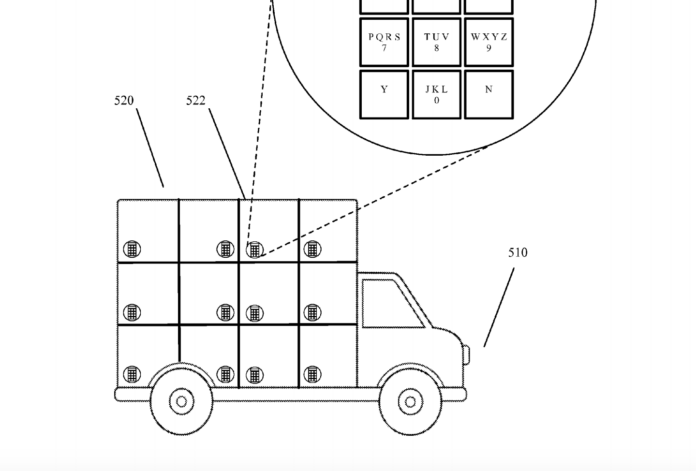In a patent filed on Feb. 9, Google forecasts potential interest in using autonomous, self-driving vehicles to deliver packages, a concept Amazon and Google have both been exploring with the use of drones.
The patent, number 9,256,852 B1, contemplates a “package delivery platform.”
Here’s the text of the patent abstract: “An autonomous road vehicle is operative to receive destination information, and to drive to a destination based on the destination information. A package securing subsystem is attached to the autonomous road vehicle and comprises at least one securable compartment. Each securable compartment is operative to secure at least one package therein. Each securable compartment is associated with compartment access information. An access subsystem comprising at least one access information interface. The access subsystem is operative, upon receipt through the access information interface of compartment access information, to permit access to the compartment associated with the received compartment access information.”
So what does that mean? The patent envisions a self-driving truck pulling up at your house; you’re expecting, maybe even tracking the truck through an app so you know when to meet it. Once the truck is there, walk out, identify the compartment assigned to you, put in an access code, take your package.
Google has a long history of R&D and testing around autonomous vehicles. Autonomous vehicles have racked up around 1.4 million miles on the road. The test vehicles operate in Mountain View, Calif., Austin, Texas and Kirkland, Washington.
In the drone delivery arena, Google’s Project Wing initially used a prototype, which was ultimately scrapped, that had a single five-foot wing. In an early test run, a Google drone delivered supplies – vaccines, water and radios–to farmers in rural Australia.

